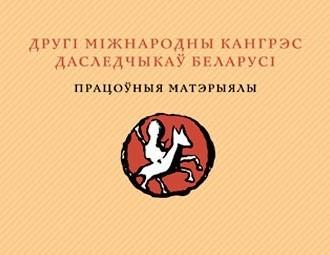Tatiana Vadalazhskaya: Employment Ban in Present-Day Belarus

The publication of the working papers of the Second International Congress of Belarusian Studies, which took place on September 28030 in Kaunas (Lithuania), is now available.
Collected working papers include the article “Employment Ban in Present-Day Belarus“ written by Tatiana Vadalazhskaja, a senior analyst of the Centre for European transformation, PhD in sociology.
The article presents the results of the monitoring of facts of persecution for professional activities. Main characteristics and trends of employment ban in Belarus are shown. It covers the entire territory, all areas of activity and ownership forms. The trend of marginalization as well as significant social and humanitarian negative effects are observed. The article outlines the key factors that support employment ban in Belarus.
Other working papers of the Second International Congress of Belarusian Studies can be found here.
About the author:
Tatiana Vadalazhskaja is a senior analyst of the Centre for European transformation, PhD in sociology. She graduated from Belarusan State University, sociology department. Tatiana Vadalazhskaja has been working in the field of humanitarian studies since 1996: at the beginning as a researcher at the Institute of Sociology of the National Academy of Sciences of Belarus, then as an expert of analytical group of the Humanitarian Techniques Agency.
The focus of research interests: humanitarian and social studies’ methodology, national and civic identity, development of local communities, civil society, cultured politics and policy in the sphere of culture.
She is the author of numerous scientific and analytical publications, editor of several scientific journals and books.
About the CENTRE FOR EUROPEAN TRANSFORMATION:
CENTRE FOR EUROPEAN TRANSFORMATION (CET) is an independent think-tank, founded in March 2010. CET is integrated into the International Consortium "EuroBelarus". Currently the main focus of the CET research and analysis work is aimed at the European Union's Eastern Partnership initiative, in particular, at the development of mechanisms for civil society participation in Eastern Partnership activity, issues of strengthening the transformational potential of the Eastern Partnership, thematic issues of culture, education, scientific research, visa policy.
-
03.01
-
07.10
-
22.09
-
17.08
-
12.08
-
30.09



























